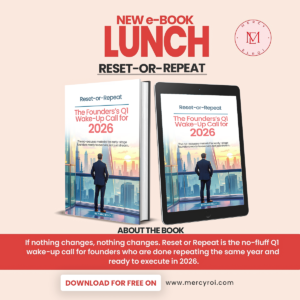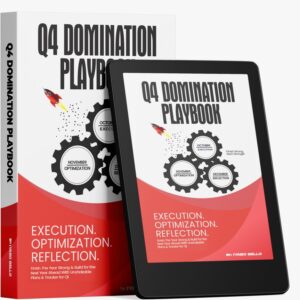
The Future of Coaching: Emerging Trends and Technologies, Tips and Tactics | Mercy Elroi

The future of coaching is rapidly evolving as emerging trends and technologies reshape the way coaches engage with their clients. Whether you’re a business coach, a life coach, or a mentor, understanding these trends is essential to staying competitive and providing the best value to your clients. As technology continues to advance, the integration of digital tools and platforms into coaching practices is becoming more widespread, offering new ways to connect, collaborate, and grow.
The coaching industry is undergoing significant changes. With the increasing adoption of technology, there are more opportunities to streamline operations, personalize services, and enhance client experiences. Let’s explore some key trends and technologies shaping the future of coaching and provide actionable tips on how to leverage them for success.
1. Digital Coaching Platforms
The rise of digital coaching platforms is transforming how coaches deliver their services. Platforms like CoachAccountable, BetterUp, and Noom are making it easier for coaches to manage client sessions, track progress, and provide ongoing support. These platforms enable clients to engage with their coaches remotely, offering flexibility and convenience.
Tip: Embrace these platforms to create a more organized, seamless experience for both you and your clients. Use them to manage scheduling, set goals, and monitor progress, all while ensuring a personalized coaching experience.
2. AI-Powered Coaching
Artificial intelligence (AI) is beginning to play a larger role in the coaching world. From chatbots providing real-time support to AI-driven analytics offering deeper insights into client behavior, AI has the potential to enhance the coaching experience. Coaches can use AI tools to analyze patterns, identify client needs, and suggest personalized action plans.
Tactic: Incorporate AI-powered tools like natural language processing (NLP) apps or data-driven insights to offer more tailored coaching solutions. These tools can help you understand your clients’ needs better and provide valuable insights to guide your coaching strategies.
3. Virtual and Augmented Reality (VR/AR)
Virtual and augmented reality are making their way into coaching by providing immersive experiences for clients. For example, VR can simulate real-world scenarios where clients can practice their skills, such as public speaking or handling difficult conversations. This technology allows coaches to create realistic environments where clients can build confidence in a safe space.
Tip: Explore VR tools that can offer role-playing sessions or simulation environments to help your clients practice their skills. Incorporating VR into your coaching sessions can provide an engaging and effective way to prepare clients for real-life challenges.
4. Personalization Through Data Analytics
Data-driven coaching is another emerging trend that’s changing the way coaches operate. By using analytics to track client progress and identify patterns, coaches can offer more personalized and targeted support. This approach helps in identifying what’s working and what’s not, allowing coaches to adapt their strategies based on real-time feedback.
Tactic: Use data analytics to personalize your coaching methods. Tools that track key metrics, like client engagement or performance, allow you to tweak your approach based on measurable results, ensuring that each session is more impactful.
5. The Rise of Hybrid Coaching Models
The hybrid coaching model, which combines traditional in-person coaching with digital tools, is growing in popularity. This approach allows for flexibility, offering both face-to-face interaction and virtual support. Clients appreciate the blend of personal connection and the convenience of online tools, which enhance the overall coaching experience.
Tip: Offer hybrid coaching models that give your clients the option to attend sessions in person or online. This flexibility makes your services more accessible and caters to the needs of busy professionals who may not always be available for in-person meetings.
6. Niche Coaching and Specialization
As the coaching industry grows, more coaches are finding success by specializing in niche areas. Whether it’s executive coaching, wellness coaching, or leadership development, focusing on a specific market allows coaches to differentiate themselves and attract a targeted audience.
Tactic: Identify a niche where you can excel and establish yourself as an expert in that area. Narrowing your focus allows you to offer more specialized, valuable services to your clients and can help you stand out in a competitive market.
7. Gamification in Coaching
Gamification involves using game-like elements such as rewards, challenges, and levels to motivate clients. By incorporating gamified elements into coaching sessions, clients are more likely to stay engaged and committed to their goals.
Tip: Introduce gamification to your coaching programs by setting up challenges, rewarding achievements, or offering “levels” of progress that clients can achieve. This adds an element of fun and competition to coaching, motivating clients to push towards their objectives.
8. The Importance of Mental Health Integration
There’s a growing awareness of mental health, and more coaches are integrating mental wellness into their programs. Clients are increasingly looking for holistic support that addresses both their personal and professional challenges.
Tactic: Incorporate mental health awareness into your coaching practices by offering tools and resources that support emotional well-being. Partnering with mental health professionals or incorporating mindfulness techniques can create a well-rounded experience for your clients.
9. Leveraging Social Media for Client Engagement
Social media continues to be a powerful tool for coaches to connect with potential clients, share valuable content, and build their personal brands. Coaches are using platforms like Instagram, LinkedIn, and YouTube to offer mini coaching sessions, share tips, and build a community.
Tip: Leverage social media to provide free value to your audience. Share tips, case studies, success stories, or even host live Q&A sessions to engage your followers and demonstrate your expertise. This helps in building credibility and attracting new clients.
10. Coaching for Diversity, Equity, and Inclusion (DEI)
As businesses place more focus on diversity and inclusion, coaches who specialize in DEI are becoming more sought after. Companies and individuals are looking for coaches who can provide training and guidance on creating inclusive work environments and overcoming unconscious biases.
Tactic: If you’re passionate about diversity and inclusion, consider offering DEI coaching services. Help businesses and individuals develop strategies for creating inclusive cultures, leading to positive changes in the workplace.
Conclusion:
The future of coaching is bright and full of opportunities, especially for coaches who embrace emerging technologies and trends. Whether it’s AI-powered insights, virtual reality tools, or data-driven strategies, the integration of these technologies can elevate your coaching practice and provide more value to your clients. By staying ahead of these trends, you can ensure that your coaching services remain relevant, impactful, and competitive.
Stay tuned for more insights, inspirations, and exciting trends as we step into a new month. Follow Mercy Elroi for your regular dose of wisdom and join us in shaping the future of personal growth!
Gift your loved ones a transformative experience by booking a coaching session with the top personal coaching service today. Mercy Elroi offers a platform where users can schedule personalized coaching sessions anywhere or anytime. Each section will guide you through personalized strategies, offer support, and help you achieve your goals. Learn more about Mercy Elroi here.
Follow us on Instagram and Twitter. Join our Facebook community and YouTube.
With gratitude,
Share on:
More Posts
Subscribe for our newsletter
READY TO LEAD LIKE A FOUNDER?
Become the leader you were meant to be and take your business to the next level. Join the Mercy Elroi CEO Insights newsletter to discover strategies, insights, and lessons from founders and visionaries driving the future of entrepreneurship. All you need to do is sign up—it’s that simple.
Privacy Policy Terms & Conditions



